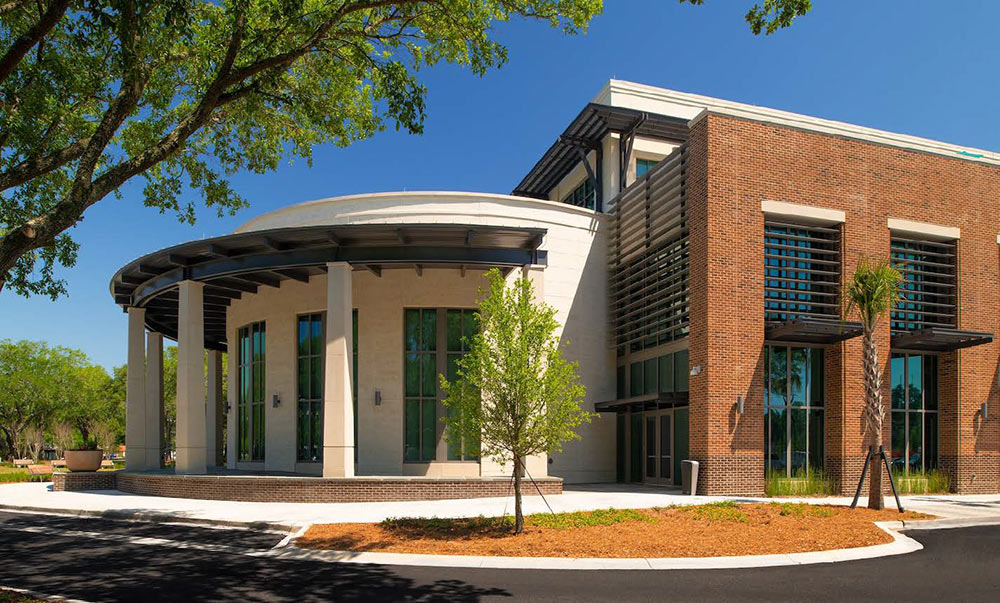
When residents of Mount Pleasant head to the polls this November, they will determine the leadership of this town for the next four years. On the ballot will be candidates for four seats on Town Council, in addition to the mayor’s nonpartisan position. Because Mount Pleasant operates on a Council form of government, the mayor does not set budgets or have hiring or firing privileges. He or she has the same voting power as each of the other eight Council members.
This year, Mayor Will Haynie — who served two years on town council before he was elected to his current position in 2017 — is up for reelection. His opponent, Kathy Landing, has served on Council for the past four years and ran unsuccessfully for Congress in the 2020 Republican primary.
As the fourth-largest municipality in South Carolina with a population of nearly 95,000, Mount Pleasant faces the challenges of a growing town. We asked both candidates where they stand on some of the key issues. You can read extended answers to these questions online.
On Why They are Running
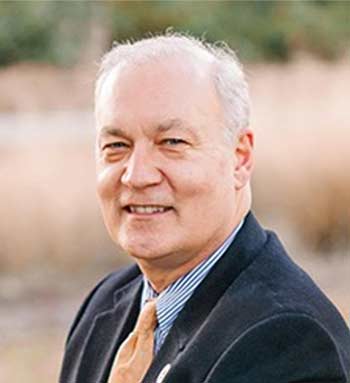
Mayor Haynie: I love this town too much to walk away now. In 2017, I ran because we were at a point where we weren’t going to get a true change of direction without new leadership. On my agenda was protecting our quality of life and improving our infrastructure by limiting residential building permits, reducing building heights, reining in short-term rentals to protect our neighborhoods and preserving our shrimping industry — to which end, I am proud to say we bought the Wando docks on my watch. These are quality of life issues, and we have tackled them all. Then COVID presented a threat to life issue. I poured my heart into protecting our citizens and spent countless hours on Zoom calls, as the only elected official on the One Region Ready Task Force, helping businesses safely reopen and working with our Mount Pleasant Chamber of Commerce on best practices. While we have had many wins, it doesn’t mean everything is fixed. In the interest of the path we are on, I want to see it through with relevant, forward-thinking leadership.
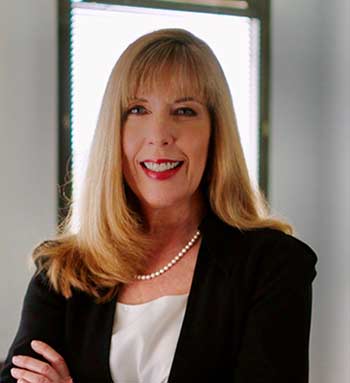
Councilwoman Landing: Over the years, I have built a successful business, raised a family and had the opportunity to serve as a volunteer for many nonprofits and on numerous wonderful boards. I felt a strong duty to take my skill set and expand it to public service. I ran for Town Council and was honored to be elected in 2017. Public office is not easy, but I am a positive person and can manage through some of the negativity. I consider the political score-settling that often occurred to be a huge waste of time that really distracted from our focus areas. We need better direction and less negativity. With a Council-strong government, the mayor’s role …. becomes about leadership and strong communication skills. It’s important to be as transparent as possible with our public so they know we are trying to stay on top of things. I want to serve as mayor for all Mount Pleasant residents, including everyone within our perimeter and newcomers as well as natives. Also, I strongly believe that government should not always resort to a new ordinance to solve every problem. Sometimes setting an example or strong messaging on a topic can serve as well as, or better than, creating a new “rule” to be enforced on our citizens.
On Keeping Mount Pleasant Safe
Haynie: It has always been my position to not only back the police with a vote on Council but with my full moral support. I chair the police, judicial and legal committees. As a member of Council, I always ask if the budget gives them the power, equipment and training they need to do their job. While the town administrator runs the town staff when we have emergencies, it is the mayor’s job to be out front with the police chief to lead the messaging. I had a great working relationship with Chief of Police Carl Ritchie, especially during COVID and the regional civil unrest. I was honored when he had me speak at the sendoff of his officers to assist with hurricane recovery in the Pee Dee. Carl will make a great Town Council member, and his successor, Chief Mark Arnold, is an excellent choice to be the new chief.
Landing: It starts at the top with police, fire and all first responders — making sure they have everything they need and are not ever “defunded.” After the Parkland shooting, when Police Chief Richie asked us to step up our SROs in schools, I was the first to say there is nothing more important than the safety of our children, no matter the cost. I applaud the way we handled the protesters last year by keeping them away from businesses and in a defined area at Waterfront Memorial Park. It was a great experience thanks to Chief Richie and his team, and we avoided the terrible unintended consequences that happened downtown. I have been handling risk management my whole life, and preparing for unexpected, rare events …. is something in which I have extensive experience. I am a compassionate person, but when you face a crisis, a leader cannot afford to allow emotions to guide the way. Among other key areas for safety and security is continuing to enhance and monitor our cyber security.
On Residential Town Growth
Haynie: One of the things I announced in my first State of the Town address is that we conduct due diligence to set a limit on the amount of annual building permits. We determined the stress on our infrastructure — police, fire and public service costs — and came to a rational and relevant decision that we could sustain a 2% residential growth rate. I am proud to say that passed. We will continue that cap as long as there is a need for it. Around 2016, we realized the then-leaders were permitting multi-family dwellings at an unprecedented rate. We did a two-year moratorium, with workforce housing being exempt, and just renewed that for another two. Voters should compare voting records between my opponent and me on this issue over the last four years.
Landing: A lot of us ran in 2016 because residential growth was getting way ahead of infrastructure and the services to support it. Using the newly passed comprehensive plan as our guide, we have been working to gradually convert more areas from residential to commercial or economic development zoning. What is desperately needed now to accommodate those who work in our biggest industries — health care, hospitality, teachers and first responders — is workforce housing that is affordable. I encouraged our Council to avoid raising taxes and to buy land to set aside for workforce housing. I believed private developers could work with state tax codes to deliver not only affordable but competitive housing in terms of appearance and quality, so housing values around them would not be negatively impacted. One of the keys is to have these homes close to major infrastructure.
On Attracting New Businesses
Haynie: National studies show that the core values of large corporations seeking to relocate have shifted, and they now place emphasis on community culture and the environment. I have always maintained we need to take care of our people, our economy and our environment, and I have a voting record on all three. Covid taught us that working from home will become more the norm, and we need to make relevant adjustments. As for sites for economic growth, elected officials don’t need to design them — but we need to design the type of community new businesses want to be in.
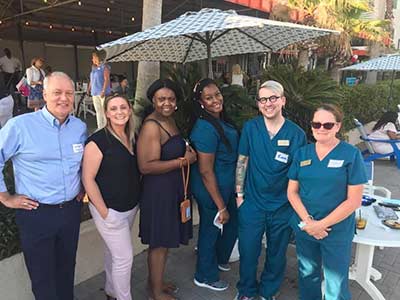
To court new business, I serve with the leaders of business and industry on the Board of the Charleston Regional Development Alliance — the organization that brought the likes of Boeing and Volvo to Charleston. I also serve on the One Region Advisory Committee, a planning initiative that is working on a multi-year regional economic development strategy for the three-county region, including Mount Pleasant. During COVID, we met weekly to help businesses stay safe and reopen safely, and I participated faithfully. Their leaders appeared before Town Council, urging mask requirements for workforce protection during COVID, which I supported. I have made it a point to let those who travel the globe recruiting jobs for our area know how motivated Mount Pleasant is to attract them.
Landing: I am a free market business person, but Mount Pleasant is limited for space, and our land is expensive. Our citizens didn’t want to keep seeing large swatches of land go to big residential developments. We need jobs and services on this side of the bridge to support our residents. We need to attract businesses to this community that could easily go to North Charleston, Goose Creek or Summerville. Through the economic development committee that I chair, we have been able to retain companies facing challenges by meeting with them, listening to their concerns and solving problems to help them stay and grow right here.
Impact fees, especially for transportation, are the number-one expense that may often work against a company’s plan for locating here, yet we need to maintain and expand our infrastructure. To help businesses who are considering a move here, we extended the time that impact fees may carry over from two years to five if a business leaves and the location is taken over by a new tenant. In the interest of encouraging businesses who want to bring major capital and jobs here, I have brought a reconsideration of the impact fee numbers to Council twice already. The best way to make sure residents don’t have to worry about taxes and fees going up every couple of years is through attracting businesses to help contribute. A good example is the Ferry Wharf development, where the land’s and building’s level of property tax is estimated to approximate the sum of taxes on 1,500 average homes in Mount Pleasant.
On Infrastructure
Haynie: We are spending tens of millions on transportation projects at this very moment. Improvements to Park West Boulevard will be complete by the time this is published. Other projects north of the IOP Connector include the All American Boulevard project, the Billy Swails Parkway Extension and a new $30 million public service facility on 17 North at Lieben Road. I am proud that I called the meeting to ensure that the Long Point Road extension to Rifle Range would not cut into Boone Hall Plantation. That is an example of protecting what we have before it is changed forever. We are spending millions to improve the intersection at Patriots Point, in preparation for an intensive mixed-use development there, which I voted against due to its density and the 80’ buildings and 65’ parking garages that I feel aren’t fit for this site. My opponent, however, voted in support.
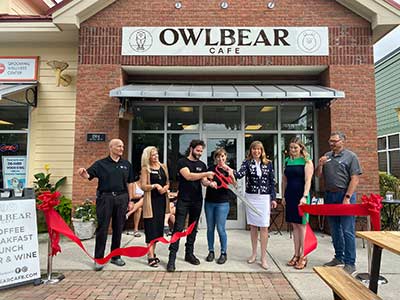
I know Highway 41 is on everyone’s mind. We must remember that this is a Charleston County project. The town does not have the authority to design it. We do have local consent under state law, which we used to eliminate Alternative 7A, which funneled traffic into our neighborhoods. We also rose up against the “DNA double helix” intersection design at Highway 17 and the spur into Brickyard Plantation. I have been actively involved for years at the public, transparent stakeholder meetings conducted by the county, at which all of the alternatives were discussed. The most recent proposal, Alternative 7B, did not come from public meetings, and I insist that all meetings and discussions by the county return to being public and transparent. Any alternative selected by the county, which only they can do, that will not pass federal regulatory or judicial approval is NOT a viable alternative.
I propose the county and state — which owns the road — look into TSMO, or Transportation Systems Management and Operations, which uses traffic management to get optimal results when pavement expansion options are limited. We know the Phillips Community has agreed to three lanes. Why not explore having two lanes going south in the mornings and two lanes going north in the evenings, using a lane in the middle that reverses? It’s already done in a lot of places, and given today’s technology, it is safe. We are not talking about police officers and orange cones directing traffic. We need a viable solution that can stand regulatory and judicial scrutiny and has an actual chance of getting federal approval, or else we will be talking about this for years to come.
Landing: Solving traffic issues is multifaceted. Once again, I will point out that recruiting more jobs on this side of the bridge will hopefully reduce the number of people who commute downtown and elsewhere. We have about 28,000 cars a day that go over the bridges away from Mount Pleasant and about 32,000 that come here. One idea I have shared with several people … involves an expanded ferry system that could encompass a Shipyard Park-Daniel Island-Port Authority-Ferry Wharf route. It could make a lot of sense and eventually be adopted by commuters in the same way as MUSC-CARTA Express. If you can take thousands of cars off the road by creating a transportation alternative that works for many people, it’s a win-win.
We are trying to encourage the county in a direction that works well for all our citizens on major projects such as the widening of Highway 41. We do not need a bypass through a beautiful park, and both the Dunes West and Park West residents do not want this either. Completion of the final leg of the Billy Swails Boulevard will be a major change, as it will provide a third artery north and south to parallel Rifle Range and Highway 17.
On Environmental Issues
Mayor Haynie: We are no longer a suburb of Charleston. We have our own identity and vision. Ever since I announced the Palmetto Principle of Leadership shortly after I was elected, — which is to protect, plan and restore — I have been true to using it as a guideline instead of chasing what is popular. That is why issues such as protecting Shem Creek are essential because if you don’t protect, you have nothing to plan. The Wando Dock acquisition was smart planning for the town and a way to protect the commercial fishing industry. Another way we are protecting this industry was through the comprehensive plastics ordinance which is, again, another contrast between my opponent and me. There were one million single-use plastic bags being distributed monthly in Mount Pleasant. It is imperative we keep the most damaging plastics out of our sensitive marine ecosystem.
I came back from the Charleston Dutch Dialogues with the takeaway that we should form a standing flood resilience committee, and it was approved by Council unanimously. That is an example of the kind of relevant and forward-thinking leadership I aim to provide. We have storm water and tidal flooding as well as an aging infrastructure to deal with. We are not only fixing drainage issues but looking at ways to prevent flooding by limiting impervious surfaces, planting trees and increasing vegetative buffers.
Landing: Shem Creek is the heart of our community, and I grew up in a family that always had boats and loved the water. We need to preserve the fishing and shrimping industry. On Earth Day 2021, I announced a reusable bag contest, designed to encourage good eco-friendly practices, encourage community-building and promote local goods at the same time. I am on the Flood Resiliency Committee and, in an effort to promote tree planting, announced the goal of planting 95,000 trees in Mount Pleasant. Our Public Services department took this idea and created the “Take Root” initiative to share the concept more easily and broadly.
On Town Finances
Haynie: If we are governing right and protecting your quality of life, it stands to reason that housing values will go up. And they have. The law requires municipalities to re-examine our property tax rates after the new property assessments are made by the county. At that meeting, we rolled our tax rate back from 41 mills to 39 mills, and 2 mills go into a lockbox to service bond debt enabling us to improve our drainage and transportation infrastructure. This was a solid compromise. Our tax rate is still the lowest in the region. I do not know of any other municipality that has done it this way. For voters to make a comparison, my opponent had an excused absence from the meeting at which this was decided, so I recommend finding out where my opponent stands on this.
Landing: In general, I am against raising property taxes and fees and fought against this in committee and Council meetings. While our citizens don’t necessarily want more big box companies, the question is, how do you continue to pay for things without that continued source of large money? The solution is to have great businesses on our side of the bridge that bring jobs and services, pay property taxes at 6% rather than 4% and create ongoing revenue for their businesses, which help pay the bills for the town. A great example is the “technology campus” that was announced nearly two years ago on Long Point Road at the site of the old Van Smith Concrete location. Right now, the property taxes are negligible, but if this is redeveloped into a job-creating, well-situated facility right near Highway 526, this business will pay substantially more property taxes and business revenue license fees. It is essential that we keep our “AAA” rating — in order to continue to accomplish this for the future, we have to be proactive. My experience is very extensive in the finance field, and it is going to take a lot of vision, critical thinking and creativity to deal with the challenges facing us in the future.
On Settlement Communities
Haynie: We are on a conscious path to reach out to the unincorporated parts of the settlement communities through our task force, while we continue to protect the parts that are in the town with our Sweetgrass Basket Overlay District and Charleston County zoning community conversations. We are working on better communication, better trust and better coordination. Annexation is always voluntary, but you have to start with dialogue. When members of settlement communities such as George Freeman, John Wright and Lewis Jefferson come and speak to us about their needs, it’s imperative we listen because they are watching and asking themselves why they should trust us. I feel confident in my voting record on the items that protect our settlement communities.
Landing: I respect the history of the families who were here before the Civil War and will work hard to empower everyone to have a seat at the table while maintaining their heritage. My friend John Wright is president of the African American Historical Settlement Communities Commission. He recently approached me about a meeting with the heads of the settlement communities regarding ideas they want to pursue. We need to establish more trust with an eventual goal of everyone coming into the town and being able to vote. When Six Mile incorporated a number of years ago, I asked one of their leaders what helped them make that decision. Among other things, it was keeping zoning in place so they could continue to maintain their agricultural traditions. Another community leader mentioned his idea to create a Gullah cultural center on the north end of town to welcome visitors to Mount Pleasant. Sweetgrass baskets are one of the most historic distinctions of our community and need to be highlighted and celebrated, along with the food and other cultural treasures.

Leave a Reply